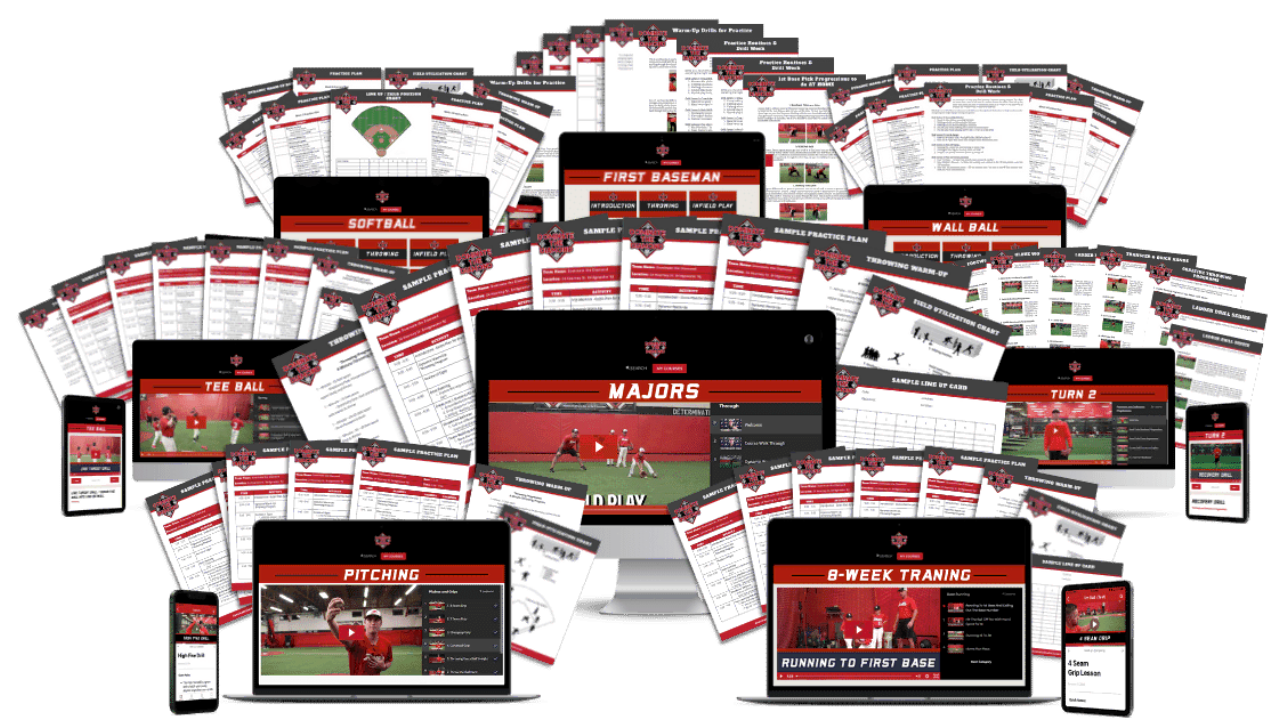How to Balance Being a Parent and Coach in Youth Baseball

If you’re juggling the roles of both parent and coach in youth baseball, you know how tough it can be. It’s not just about teaching skills or planning games—it’s about being there for your child and the whole team in equal measure. The pressure to balance these roles perfectly can be overwhelming. To help you navigate this challenging but rewarding journey, we’ve gathered valuable insights from Coach Duke, a seasoned expert in youth baseball. His practical advice is here to support you, offering strategies that have been proven to work in the real world of youth sports.
Keeping It Fair for Everyone
When you’re a parent and a coach, it’s super important to be fair to all the players, including your own kid. Here’s how you can make sure everyone gets treated equally and understands the rules:
Set Clear Rules: At the start of the season, lay out the rules about who plays when and where. Explain that decisions are based on how well everyone is playing and practicing. This makes it clear that being fair is a big deal.
Make Fair Choices: When it’s time to pick who plays which position or who starts a game, base your decisions on how players are doing in practice, not just because one is your child. Keeping track of everyone’s performance can help show why you make your choices.
Talk Openly: Be upfront with players and their parents about why you make certain decisions. If people have questions, they should feel comfortable asking you. This helps everyone understand that you’re being fair and thoughtful in your role as coach.
Give Everyone Feedback: Regularly tell all players what they’re doing well and what they can work on. This keeps your advice balanced and helpful.
Ask for Help: Sometimes, get your assistant coaches’ opinions, especially for decisions about your own child. They can give you another point of view and help make sure you’re being fair.
By keeping things as fair as possible, you can create a positive environment for all the players. This helps everyone feel respected and part of the team, which makes the season better for everyone.
Setting Boundaries with the Hat Rule
Navigating the roles of both parent and coach can be tricky. Coach Duke uses a simple yet effective method called the “Hat Rule” to help manage his dual responsibilities. When Coach Duke puts on his baseball cap, it signifies that he’s stepping into his coaching role, focused on the game and its demands. His son adopts the same rule; wearing his hat means he’s ready to discuss the game and accept coaching guidance.
After the game, the dynamic changes. Coach Duke removes his hat and places it on the dashboard, signaling that he’s back to being just ‘Dad.’ This action tells his son that the coaching role is paused. If his son keeps his hat on, it indicates he’s willing to talk about the game, but Coach Duke remains in his parental role, listening without critiquing. If the hat comes off, it means no baseball talk; it’s time for space from the game.
The Benefits of Clear Communication
This straightforward rule helps Coach Duke and his son switch roles smoothly and keeps their relationship healthy and stress-free after games. It prevents the post-game drive from becoming a session of critiques, which is common in many sports families and can dampen a child’s enthusiasm for the sport.
By setting such clear boundaries, parent-coaches can better support their young athletes emotionally and sportively. The Hat Rule is more than a communication tool; it’s about understanding and respecting emotional boundaries, crucial for maintaining a positive parent-child relationship.
Coach Duke’s strategy offers a practical approach for other parents who coach, helping them maintain clarity in their roles and ensuring that their involvement enriches their child’s sports experience.
Balancing Time and Commitment
Managing your time well is key when you’re both a parent and a coach in youth baseball. It’s important to figure out which tasks need your immediate attention and which can wait. For instance, while it’s crucial to plan for upcoming games, you also need to make time for family events like your child’s school play. A good way to keep everything organized is by using a calendar to mark down both your coaching responsibilities and family activities. This way, you avoid double-booking yourself and ensure you have dedicated time for both roles. Setting Sundays aside just for family activities, for example, can help you recharge and give your loved ones the attention they deserve.
Another helpful tip is to delegate some responsibilities to assistant coaches or other parents. Maybe one parent can handle organizing snacks while another could take charge of team emails. This not only lightens your workload but also gets more people involved in team activities. Clearly defining your coaching hours, like planning or reviewing games from 6 PM to 8 PM, then spending the rest of the evening with your family, can help maintain a healthy balance between your coaching duties and your personal life. It’s also vital to keep your family in the loop about your schedule. This way, they understand your commitments and can support you better, making sure everyone knows what to expect and when.
By organizing your tasks and involving others, you can handle being both a coach and a parent without feeling overwhelmed. This approach ensures you can give your best to your team while still making unforgettable memories with your family.
Managing the dual roles of parent and coach is no small feat. It requires not just love and patience, but also a well-thought-out strategy to ensure you’re supporting everyone effectively. The tips from Coach Duke, such as the “Hat Rule” for clear role transitions and methods to ensure fair play, are crafted to help you tackle these challenges head-on. Adopting these approaches will help you create a supportive and positive environment for your team, strengthen your bond with your child, and ensure that youth sports are enjoyable and enriching for everyone involved. Remember, the ultimate goal isn’t just about winning games; it’s about teaching valuable life lessons and fostering a lasting love for the game.
If you’re looking for a way to make your coaching duties a bit easier and carve out more time to spend with your family, why not check out our pre-made practice plans? These tools are designed to help you plan efficiently, so you can focus more on enjoying the coaching experience and less on the stress of preparation. We’re here to help you find the right balance—take a look and see how these resources can fit into your coaching routine.








